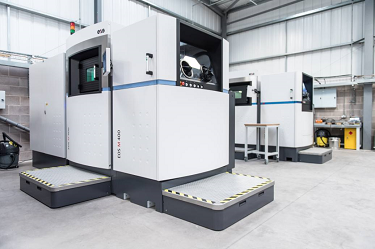How can the additive process manage data and product creation?

What’s one major benefit of additive manufacturing? The additive process can help companies reduce the number of parts needed to build products, which makes products easier to maintain over time.
However, with new technology and processes come new challenges.
In “Where to Start: Three Use Cases for Industrial Scale Additive Manufacturing,” the fourth podcast in our Additive Manufacturing series, Dean Haehnel, director of marketing, joins Robert Meshel, director of the Siemens Additive Manufacturing Network initiative, to discuss the benefits of 3D printing.
They also discuss potential use cases, and the complications and solutions to managing massive amounts of data that come with additive manufacturing. The amount of information available is making it difficult for engineers to interpret all the data and make the informed decisions that can help companies and products succeed.
The advantage comes from greater advancements in designing and redesigning products, along with digital inventory.
“This is really about the ability to design anywhere or build anywhere or if you wish, the separation between the design and manufacturing,” Meshel said.
Meshel and Haehnel talk in-depth about the digital inventory and the level of investment done by manufacturers in maintaining and storing inventory. The digitalized additive process is completed by machine so the location of the machines capable of creating a product can be used to the advantage of the manufacturer.
No longer will a company need multiple machines in one single location creating products: those machines can be distributed globally and serve local markets, meaning the future of additive manufacturing will make it easier for businesses and industries to create more cost-effective products.
Missed the first three episodes? You can still listen to episode 1, episode 2 and episode 3. The full podcast series is available on Soundcloud, Stitcher, and iTunes.
Click here to read more about additive manufacturing.
About the author
Steve Hartman is a Thought Leadership writer for Siemens PLM Software. Steve’s experience is varied spanning the automotive, financial, real estate, travel and sporting goods industries as well as having written four published novels and cowrote a memoir. He has a wife, three kids, two dogs, a cat and a rabbit. And still, he carves out time to read, watch movies and write.


